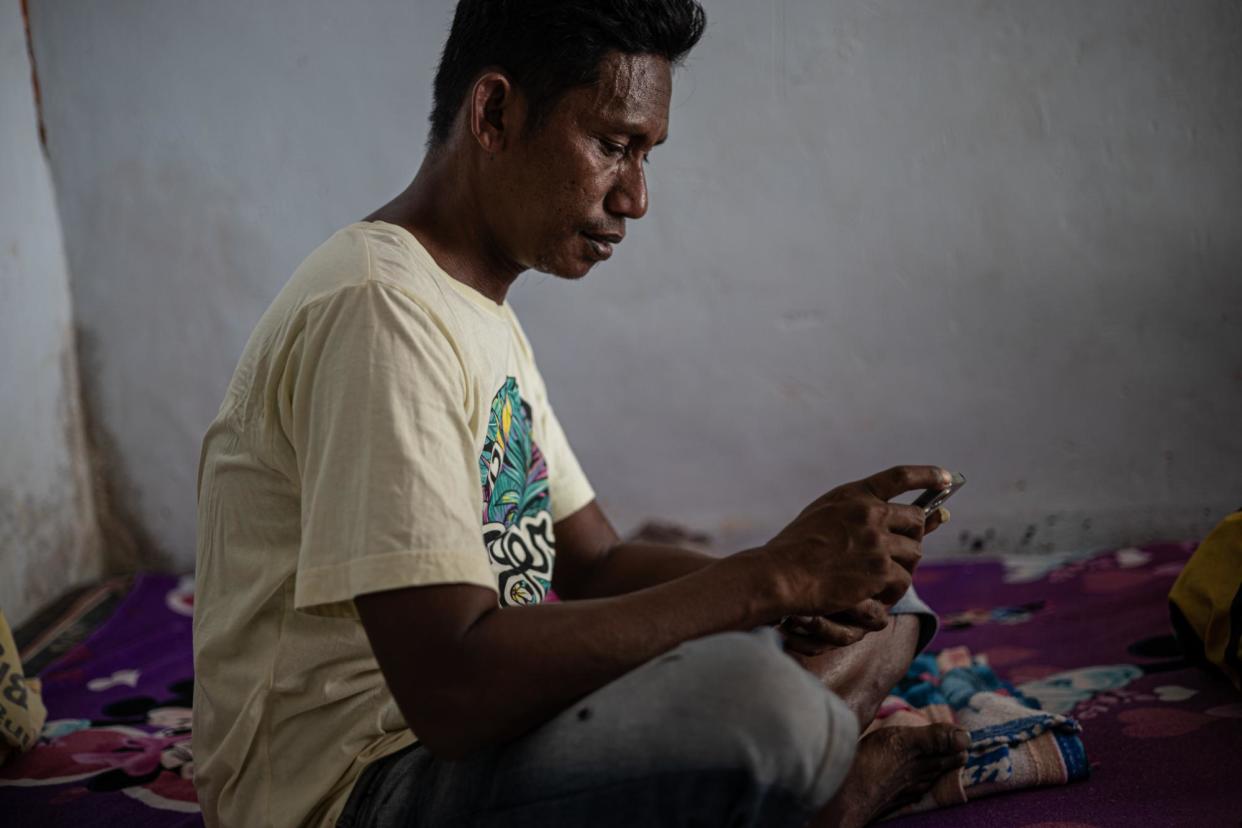Indonesian boys jailed by Australia claim no translation provided in court

Vulnerable Indonesian children say they were either given no interpreter or an interpreter who spoke the wrong language during deeply flawed people smuggling prosecutions, leaving them unable to understand court proceedings before their imprisonment by Australia in maximum security adult jails.
The Australian government last year agreed to pay $27.5m in compensation to more than 200 Indonesians who were wrongfully prosecuted and detained as adult people smugglers while they were children.
The children were found on boats carrying asylum seekers to Australia in 2009 and the early 2010s during the last Labor government.
The majority were from poor fishing villages and many were tricked into joining the voyages by people-smuggling ringleaders.
Australian policy was to send any underage crew members on asylum seeker boats home to Indonesia, but police instead relied on a deeply flawed and now universally condemned method of wrist X-ray analysis to wrongly deem them adults.
Children as young as 12 were sent to maximum security adult prisons in Western Australia and the Northern Territory on the basis of the flawed evidence.
Guardian Australia revealed in 2022 that federal police had information that should have cast doubt on the wrist X-ray technique’s reliability and accuracy, but relied on it anyway. Documents showed they did so despite consistent statements from the children that they were under the age of 18.
Now, new testimony from Indonesians who were detained in Australia shows they were also left unable to understand the court proceedings against them because of language barriers.
Kevin, who uses just one name, was 16 at the time of his arrest and says he was not given an interpreter for two remote viewings of court proceedings while he was on remand in Western Australia.
“I didn’t understand anything because there was no interpreter there,” Kevin says from his home in Kupang, in West Timor. “I was by myself.”
He says he can’t remember if he was given an interpreter on a third occasion, when he went to court in person for his sentencing.
“I didn’t understand anything. I didn’t have any idea.”
The WA courts said they were unable to find Kevin’s file.
Nasrudin Yahya says he was also 16 when he was imprisoned in Australia as an adult people smuggler, although he acknowledges he told defence lawyers he was in fact 25 because he was afraid and mistakenly thought “that by saying that, I could be sent home straight away”. He says he was given a Javanese interpreter, despite the fact that he doesn’t speak the language. His native language is a local Kupang dialect.
He says he did not understand his court proceedings before being sentenced to five years under the mandatory minimum sentencing regime put in place by the Howard government for people-smuggling offences.
“I thought that they were going to send me back home,” he says . “I had no idea I was going to jail.”
A spokesperson for the Northern Territory supreme court told Guardian Australia: “While it is impossible to go back in time to know exactly what Mr Yahya understood, all indications are that he was aware of the allegations against him and had an interpreter whose qualifications (and the languages spoken) were known months ahead of time to the defence.”
Kevin was held in Hakea prison, an adult maximum security prison, and Albany and Pardelup jails, for about three years. When he was eventually released, he was taken to Bali, not his home island of Timor. When he finally arrived, he discovered the grandmother he had lived with had died.
Related: Australia urged to quash convictions of all Indonesian children jailed as adult people smugglers
Colin Singer, a former official prison visitor in WA, describes Kevin’s case as “appalling”. Singer has advocated for the Indonesian children who were wrongly jailed as adult people smugglers since he encountered Ali Yasmin in Hakea, the maximum security adult jail. Yasmin was 12 when he was detained.
Since the federal government agreed to settle that case last year, Singer and lawyers with Ken Cush and Associates have travelled through Indonesia to identify and verify individual cases of wrongful imprisonment.
He says he has encountered a number of men who were children when they were arrested, and were also left unable to understand the court proceedings due to language barriers.
“During our tours … it has become more and more clear that almost all the kids had no understanding of Australian immigration detention processes and the legal proceedings brought against them,” he says.
“That so many kids were further disadvantaged in this way is appalling. Sadly, this probably reflects the attitude of Australian government agencies’ lack of willingness to understand the cultural diversity of the Indonesian people.”
A spokesperson for the AFP says it no longer uses wrist X-rays for age assessment.
“The AFP previously used wrist X-rays for the purpose of determining whether a person was under 18 years old, consistent with its powers and obligations under the Crimes Act 1914 and the Crimes Regulations 1990,” the spokesperson said.
“The AFP no longer does so, and the relevant provisions authorising wrist X-rays are no longer in force.”
The WA justice department says that judges rely on a defendant’s lawyer to determine “whether a client or witness may need an interpreter”.
“Counsel is responsible for submitting an interpreter booking form which details the language and dialect required, as well as any other relevant information,” a spokesperson says. “The court then makes a booking through an approved service provider or recognised agency.”
The spokesperson says that, if it becomes apparent during proceedings that further expertise is required, the interpreter must inform the court immediately to resolve the situation.
“The Western Australian Government is committed to ensuring that those who are unable to communicate effectively in written and/or spoken Standard Australian English are provided with access to interpreting and translating services that are responsive and of high quality,” the spokesperson says.

 Yahoo News
Yahoo News 
